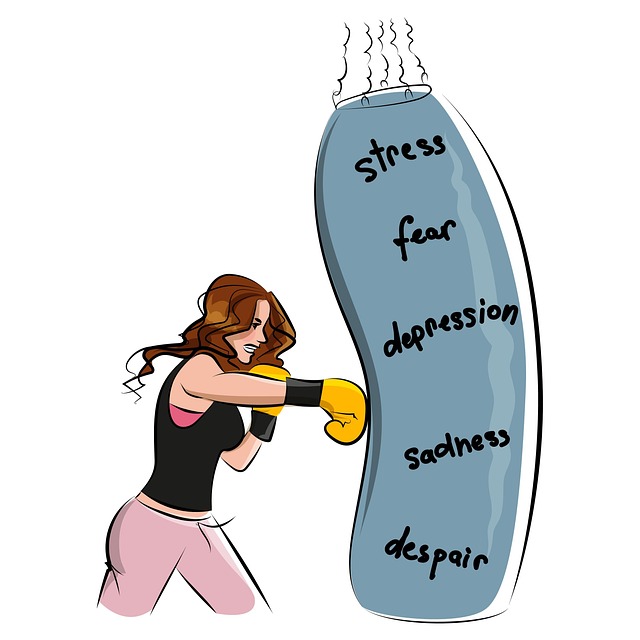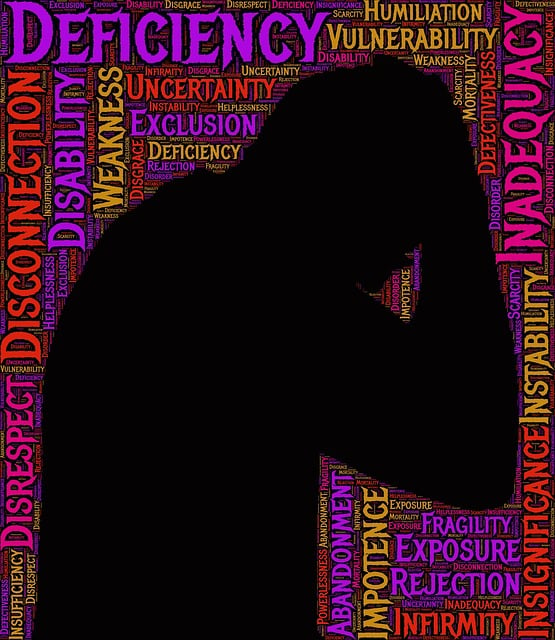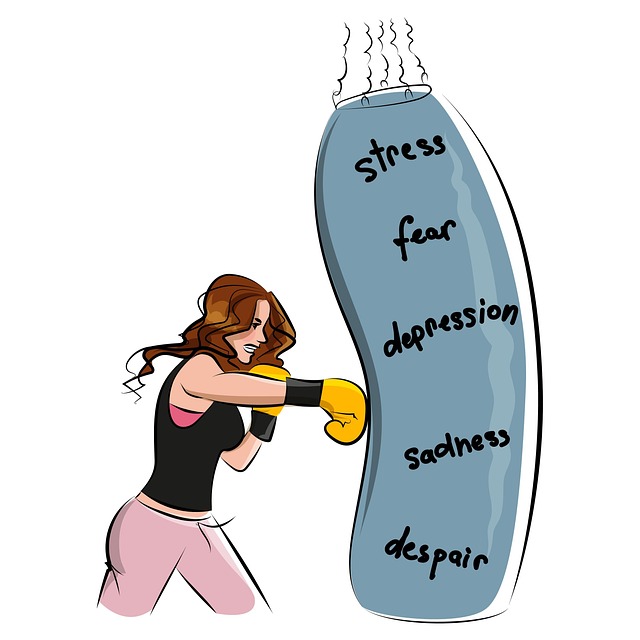Depression, a complex mental health issue, can be tackled through Parker Abuse Survivors Therapy (PAT), which focuses on understanding and processing personal trauma triggers. PAT's coaching programs empower individuals to develop inner strength, learn coping strategies, build resilience, and practice self-care. Through personalized therapy sessions, clients gain stress management skills, emotional regulation, and positive thinking patterns, preventing depression and fostering long-term mental wellness. This evidence-based approach incorporates Mind Over Matter principles and tailored healthcare provider training to address individual needs effectively.
Depression is a prevalent mental health challenge, but proactive strategies can help prevent its onset. This article explores three key approaches to combat depression. First, we delve into understanding the triggers and signs of this complex condition. Next, discover resilience-building techniques and self-care practices proven to enhance well-being. Finally, explore Parker Abuse Survivors Therapy as a transformative pathway to healing and prevention for those who have experienced trauma or abuse.
- Understanding Depression and Its Triggers
- Building Resilience: Coping Mechanisms and Self-Care Practices
- Parker Abuse Survivors Therapy: A Pathway to Healing and Prevention
Understanding Depression and Its Triggers

Depression is a complex mental health condition that significantly impacts an individual’s daily life and overall well-being. It’s more than just feeling sad or blue; it’s a persistent low mood that can last for weeks, months, or even years. Understanding depression involves recognizing its various symptoms—from intense sadness and loss of interest in activities once enjoyed to changes in appetite, sleep patterns, and energy levels. For Parker Abuse Survivors Therapy (PAT) clients, the journey towards healing often begins with identifying personal triggers. These could stem from past traumatic experiences, such as abuse or neglect, which can resurface and contribute to depressive episodes.
By delving into these underlying causes, mental wellness coaching programs can play a pivotal role in depression prevention. PAT’s approach focuses on developing inner strength by helping individuals process and overcome their trauma. This involves learning coping strategies, building resilience, and fostering a sense of self-care. Through personalized therapy sessions, clients are equipped to manage stress, regulate emotions, and cultivate positive thinking patterns. Thus, not only does this process prevent depression, but it also empowers survivors to lead fulfilling lives, nurturing their mental wellness in the long term.
Building Resilience: Coping Mechanisms and Self-Care Practices

Building resilience is a key component of depression prevention, offering individuals the tools to cope with life’s challenges and stress. Parker Abuse Survivors Therapy (PAT) emphasizes the development of healthy coping mechanisms as a means to enhance emotional regulation. Through PAT, survivors learn to identify and challenge negative thought patterns, replacing them with more adaptive strategies. This process empowers individuals to manage their emotions effectively, ensuring they don’t get overwhelmed by life’s stressors, which is a primary factor in both burnout prevention and depression prevention.
Self-care practices are integral to this resilience-building process. Engaging in regular self-care activities, such as exercise, mindfulness meditation, or creative pursuits, can significantly contribute to emotional well-being. These practices provide an outlet for stress relief and help individuals maintain a sense of balance. By prioritizing self-care alongside professional support, individuals can fortify their mental resilience, making them better equipped to navigate life’s ups and downs without succumbing to depression or burnout.
Parker Abuse Survivors Therapy: A Pathway to Healing and Prevention

Parker Abuse Survivors Therapy (PAST) offers a unique and powerful approach to healing and depression prevention for individuals who have experienced trauma or abuse. This therapeutic method is designed to empower survivors by providing them with the tools and skills necessary to process their past experiences and develop healthy coping mechanisms. Through PAST, clients learn to navigate the complexities of their emotions, fostering mental wellness and resilience.
The therapy focuses on evidence-based Mind Over Matter principles, encouraging individuals to take control of their mental health journey. By participating in tailored Healthcare Provider Cultural Competency Training, therapists gain a deeper understanding of their clients’ unique backgrounds, ensuring a more effective and sensitive support system. This holistic approach not only aids in the prevention of depression but also promotes long-term emotional well-being for trauma survivors.
Preventing depression involves a multi-faceted approach, from understanding its triggers to building resilience. While self-care practices are essential, certain individuals may benefit significantly from specialized therapies like Parker Abuse Survivors Therapy (PAT). PAT offers a unique pathway to healing by addressing underlying issues and fostering coping mechanisms tailored to trauma survivors. By integrating this approach into their toolkit, folks can navigate the complex landscape of mental health more effectively and reduce the risk of depression.














